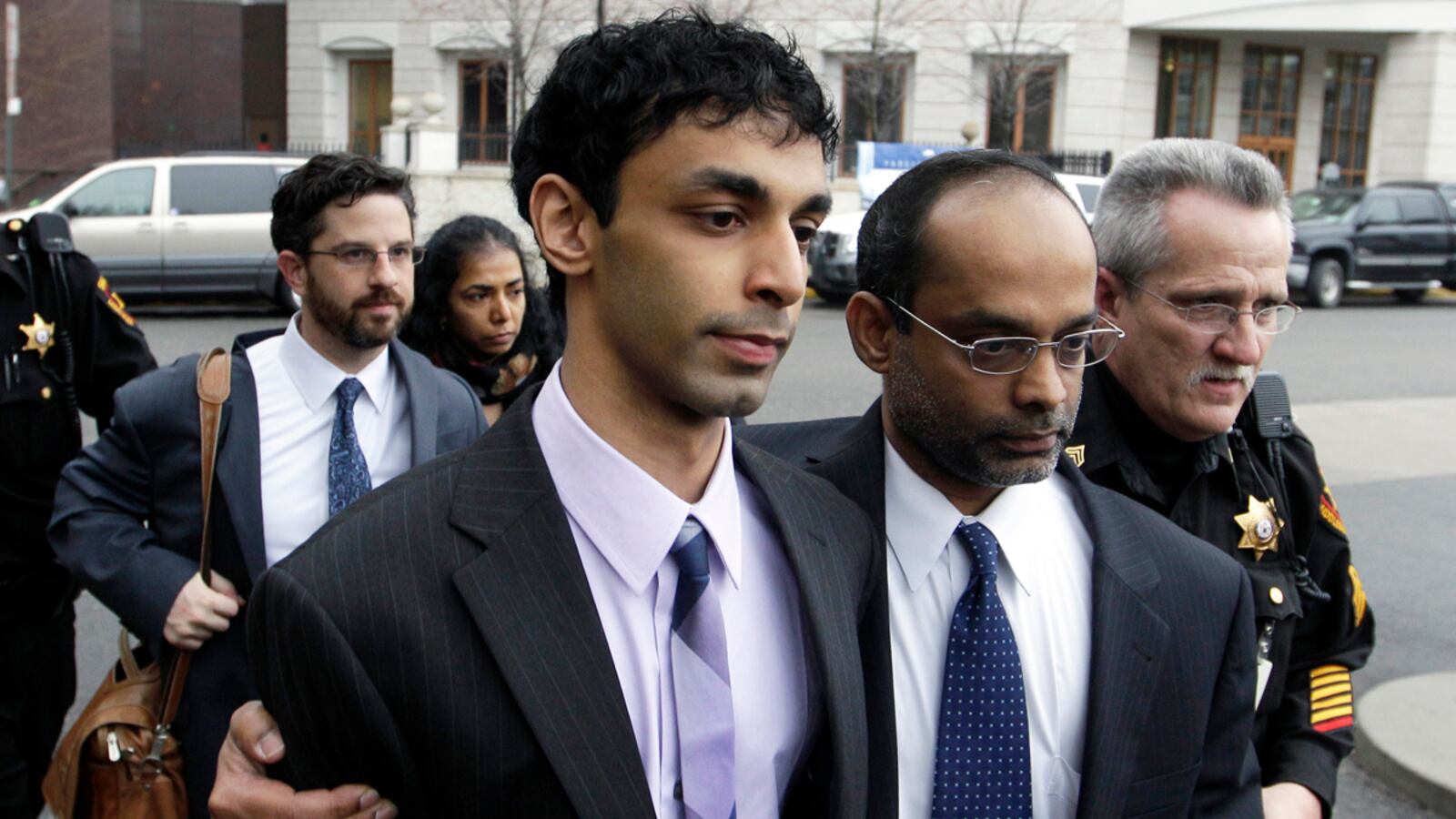Hate crimes laws are supposed to promote ideals of fair treatment and equality. The tragic recent case of two Rutgers students, however, shows that instead of guaranteeing uniform standing to all segments of society, such legislation grants special protection and governmental favoritism to selected groups of victims.
A jury in New Brunswick, N.J., convicted 20-year-old Dharun Ravi on Friday of 15 charges related to webcam spying on his freshman roommate, Tyler Clementi. Beyond the undoubtedly appropriate charges of invasion of privacy and tampering with evidence, prosecutors accused Ravi of the far more serious crime of “bias intimidation” under New Jersey’s hate crimes statute. At his sentencing May 21, Ravi could face 10 years or more in prison, as well as deportation to India, where he was born.
This crushing potential penalty stems from the suicide of Clementi, who killed himself Sept. 22, 2010 by jumping from the George Washington Bridge. The two freshmen had shared dormitory accommodations for only a few weeks and had experienced strained relations from the start. Three days before his death, Clementi, who was gay, asked for privacy to use their room for an encounter with a 32-year-old non-student with whom he had connected on the Internet. Ravi met his roommate’s date briefly and sent text messages to friends describing the man as “creepy” and expressing worries about theft. Ravi said he deliberately left his webcam on to monitor the visitor because he was worried about the security of his property. With another student, he watched Clementi embracing the other man and then sent out derisive Twitter and text messages about his roommate “kissing a dude.”
Ravi invited other friends to join him in watching the next scheduled visit, two days later. But the webcam did not work on that occasion, perhaps because a guilt-stricken Ravi dismantled it, as he later claimed, or because it malfunctioned, or because Clementi discovered the intrusion and he or his visitor covered the device. The next day, Clementi complained to the dormitory’s resident assistant and to two other officials, and said he no longer wanted to share his room with Ravi.
Ravi sent his roommate a vaguely apologetic message—just five minutes after Clementi used his cellphone to post a final message to Facebook: “Jumping off the gw bridge sorry.” Authorities recovered his body a week later.

This horrible story shows boorish, cruel, arrogant behavior on the part of Ravi, but he rejected a proffered plea bargain, saying he was not guilty of the “hate crimes” prosecutors accused him of committing. The trial focused on Ravi’s motivation, with the prosecution insisting he acted out of deep-seated anti-gay bias and the defense arguing he was merely wary and curious about his roommate’s actions but never intimidating or hate-filled. The first witness testified that when Ravi said he wanted to use the webcam to spy on his roommate, “he didn’t seem to have a problem with homosexuality.”
Eventually, the jury agreed with the defense on Ravi’s intentions, though they convicted him anyway. Annemarie McAvoy, an adjunct professor at Fordham Law School, described the verdict to The Philadelphia Inquirer as “murky and confusing…The jury appeared to find that Ravi’s intentions were not out of hatred or bias. But the jurors believed Tyler Clementi perceived them as such…It’s an outrageous standard.”
To determine just how outrageous, imagine that Clementi’s intimate encounters had involved a 32-year-old non-student who was female. If Clementi had brought a woman he had just met on the Internet to his dorm room, and his embarrassed roommate had found her “creepy,” while worrying about theft and the invasion of his privacy, isn’t it conceivable Ravi could have set up a webcam to monitor the exchange of affection? And even if he made subsequent Internet comments about the gross nature of the incident, and attempted to broadcast a subsequent tryst some two days later, would anyone claim the commission of a heinous hate crime meriting 10 years or more in prison?
New Jersey law would seem to make such a prosecution impossible, as the “bias intimidation” statutes provide no special protection for lusty, heterosexual 18-year-olds. But those laws do guarantee that randy, adventurous homosexual teenagers must be defended from insult or harassment. In other words, the state has decided to grant special standing and governmental respect to one form of erotic expression over most others.
Lost in all the legal proceedings and the debates about the nature of homophobia is a basic anomaly in the story: the notion that a newly enrolled freshman living away from home for barely a month has a sacred right to bring a 32-year-old stranger, male or female, into a freshman dorm at a state-funded university, in order to enjoy sex without objection or ridicule from the roommate with whom he shares the space. The simple facts of this case suggest that Ravi and Clementi had many reasons to resent and distrust each other that bear little connection to questions of sexuality or anti-gay bias.
The phrase “hate crimes” most commonly conjures images of cross-burning, swastika-painting, or crude taunts and physical assaults on gay or female victims. The perpetrators in these classic episodes express unmistakable hostility to a target group and an apparent intention to perpetuate that group’s subjugation. Dharun Ravi’s behavior fell far short of such standards, leading the triumphant prosecutors to boast of their bold “expansion” of the definition of bias intimidation.
The result involves a dubious effort to elevate some victims above others, rather than leveling the field with equal treatment.
The Ravi case suggests that if the target of alleged abuse can claim membership in a specially protected group, then his emotional reactions to that abuse matter more than the intentions of the perpetrator, or even the specifics of the actions in question. The testimony at the trial and even comments by the jurors indicate that Ravi never knowingly committed a hate crime targeting homosexuality in general, nor ever understood that he had done so. Without doubt, he behaved cruelly, even despicably, to his roommate, but had that roommate been straight, no one would have claimed that the pattern of behavior constituted a major offense.
After his sentencing, Ravi’s attorneys promise they will launch a vigorous appeal, and the ultimate disposition of his case will help to determine whether advocates of hate crimes laws can continue to claim that they serve the cause of fair and equal justice, rather than patent preference for favored victim classes.






